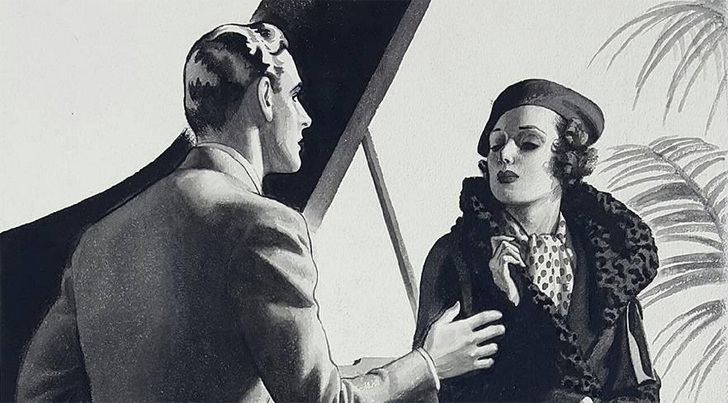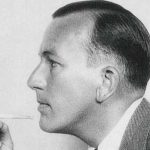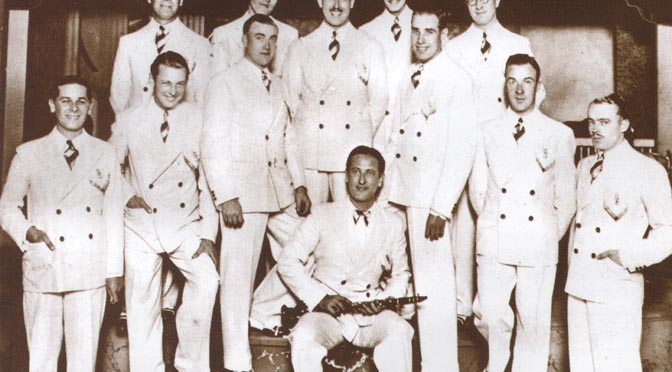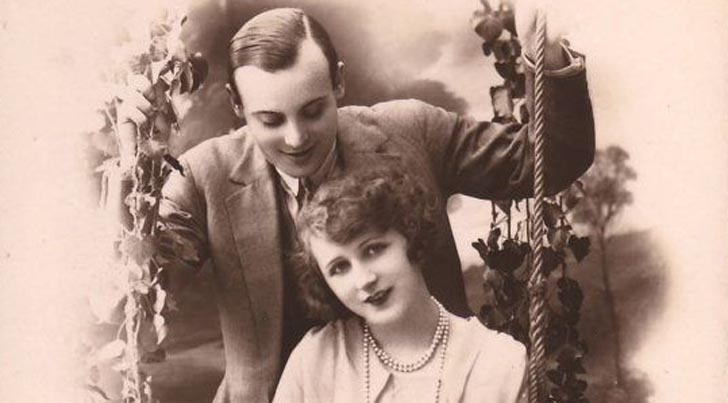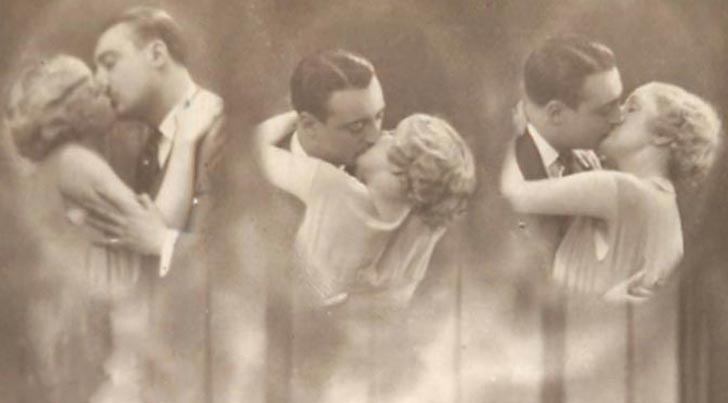“You’ll Find Out.” Words and music composed by Archie Gottler and Betty Treynor (a pseudonym of Lawrence Wright) for On with the Show. Recorded in London on June 15, 1932 by Ray Starita and His Ambassadors with vocalists Elsie Carlisle and Sam Browne. Sterno 984 mx. S-2477-2.
Personnel: Ray Starita-cl-ts dir. Nat Gonella-t / t / tb / prob. Chester Smith-cl-as-bar-o / Nat Star-cl-as / George Glover-cl-ts-vn / George Hurley-vn / Harry Robens-p / George Oliver-bj-g / Arthur Calkin-sb / Rudy Starita-d
Ray Starita and his Ambassadors – You’ll Find Out – 1932
Transfer by Henry Parsons
Between 1932 and 1937, Elsie Carlisle would make some 42 record sides with Sam Browne, most famously with Ambrose and His Orchestra, but occasionally also with other bands. The two singers became best known for on-shellac vituperative bickering (the best examples being found in “Seven Years with the Wrong Woman,” “What’s Good for the Goose Is Good for the Gander,” and “I’m Gonna Wash My Hands of You”). But their fictional relationships could be much more playful and subtle, as we see here in “You’ll Find Out,” which they recorded with Ray Starita’s band.
“You’ll Find Out” was a joint composition of American songwriter Archie Gottler and the prolific British composer Lawrence Wright, who most frequently used the pseudonym “Horatio Nicholls.” (His pseudonym used here — “Betty Treynor” — may have been a one-off.) As far as I can tell, this West End musical song was only recorded one other time; that recording, from April 1932, featured Sam Browne with Billie Lockwood under the Zonophone pseudonyms “Jack and Jill.” Now, “Jack and Jill” numbers, while delightful, tend to be comparatively sedate, and that is definitely the case with the Browne-Lockwood version. The two singers slowly take their turns delivering the increasingly suggestive lyrics, leaving the song’s comic sensibility underdeveloped.
Browne and Carlisle, in the Ray Starita recording of the song, uncover the composition’s potential. Part of their success is due to an audible chemistry that few duettists could match. But just as important is their phrasing as they deliver the lyrics. The joke of the song is that the young couple asks each other questions that seem to answer themselves: “What do lovers do out in the moonlight?” “What will we do evenings when it’s raining?” Supposing I must leave you for a week or two / And you haven’t got as single thing to do / How would you spend all those lonesome evenings?” Answered with “You’ll find out!” the questions suggest sex, infidelity, and the like.
The repeated punchline risks seeming monotonous. But we hear Sam and Elsie breaking up that monotony by altering the line “You’ll find out” in such a way as to dramatize it. “You’ll find out” gives way to “Ah! You’ll find out…”; “Could I? You’ll find out!”; “Oh, but…you’ll find out!”; “It is! You’ll find out…”; “Hmm… You’ll find out!” and finally, “Try and find out!” By varying the response, they produce something resembling a witty, funny conversation.
The vocal chorus is unusually long in this dance band recording, and the arrangement is remarkably sophisticated. Ray Starita’s musicians remain comparatively quiet during the vocal refrain, but as it progresses they build momentum and come in strong at the end. Starita’s band was brassless at the time, and one gets the sense from the powerful sax section work in “You’ll Find Out” that the orchestra could execute a dynamically scored arrangement without trumpets and trombone — instruments added only for recording purposes in Starita’s 1932 British Homophone sessions.1
Notes:
- My thanks to Henry Parsons for reminding me of this latter point. ↩

